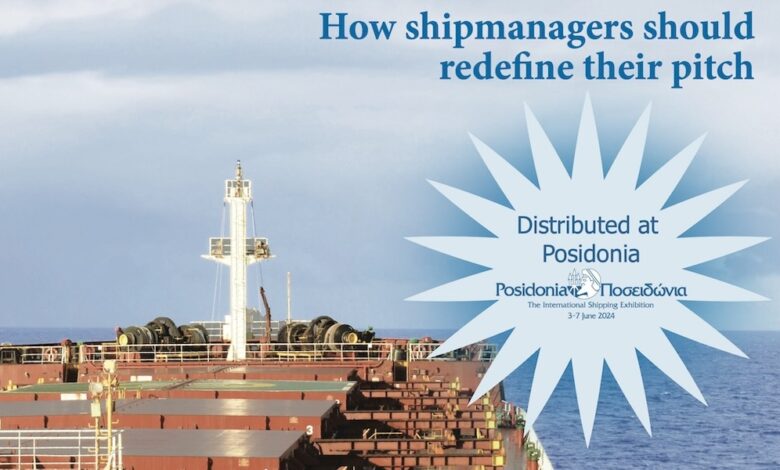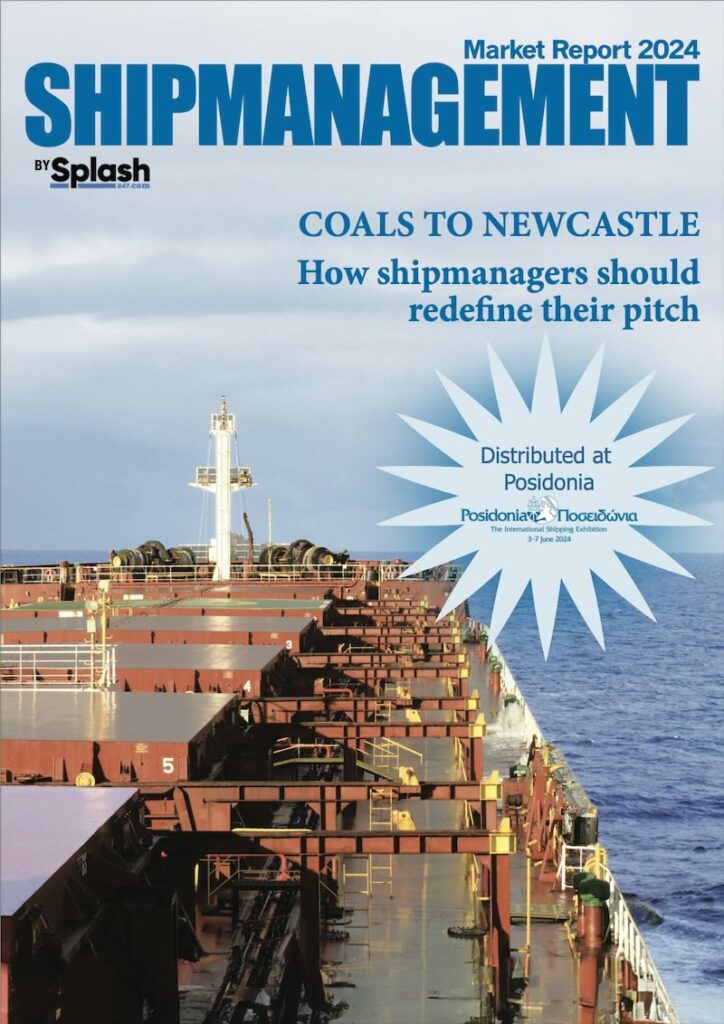Shipmanagement magazine launched ahead of Posidonia

Now has never been a better time to sell the pros of outsourcing ships. Why aren’t the world’s managers raking in far more clients?
The argument to outsource has never been stronger, and yet less than one in five ships are farmed out to managers today.
What is the sector doing wrong in appealing to its clientele? How best to get this message across? This forms much of the coverage in our new 68-page shipmanagement magazine being distributed online, across the world in print and in person at the Splash-sponsored Posidonia next week.
Today’s complex trading and regulatory environment makes the case for outside expertise more strongly than at any time since the concept of third-party shipmanagement was conceived in the late 1960s. And yet less than 20% of the world merchant fleet is outsourced to managers. Moreover, despite all the chat of consolidation within the sector, the number of ships under full technical management among the world’s eight largest shipmanagers has actually shrunk in the year since Splash published its last sector-specific title. Sales and marketing teams are clearly not getting their message across correctly. A theme throughout this magazine is identifying the role of shipmanagement in the mid-2020s, and by extension how managers should be finessing their pitch to clients.
Shipowners by their nature are not necessarily the easiest of candidates to sell outsourcing products to – traditions handed from generation to generation have seen to that, mentalities are ring-fenced.
“Many owners wish to manage their own vessels, as this has been a way to ensure longevity, quality, control, and transparency,” says Marlon Rono, the veteran president of Manila-headquartered Magsaysay People Resouces Corporation.
Rajiv Singhal, managing director of MTM Ship Management, lists the five reasons owners ought to be using managers more: specialisation, compliance, adjustability, economies of scale, and transparency.
“Apart from scale and wide sector technical expertise, we believe a manager can also bring in fresh perspectives, latest technological insights and ideas, and create innovative tailored solutions for shipowners, and new business opportunities as well,” says Captain Zhou Jianfeng, managing director of Wah Kwong Maritime Transport Holdings. “We believe the trend of closer partnerships will continue along the supply chain in the face of the rapidly changing landscape of geopolitics and decarbonisation developments.”
This is an opinion shared by Magsaysay’s Rono. “I think we are seeing there being more value in a manager that does more for an owner especially in a world of increasing requirements for our industry, there is a need for a manager to provide the full spectrum of services previously not required,” he says.
Like Zhou at Wah Kwong, John Michael Radziwill is in a good position to comment on the whole shipping outsourcing conundrum being both an owner with GoodBulk and a manager with C Transport Maritime.
“Each situation is unique and each owner’s position is specific to them,” he says, going on to elaborate: “Two of the most important things to compare however versus in-house ability is cost and competencies. Can a manager perform the required task cheaper, more efficiently and with a better performance than an owner can do it in-house?”
If they cannot provide these services at competitive costs then managers will become obsolete, he warns.
“The past, present, and the future of shipmanagement is a partnership model,” concludes Ioannis Stefanou, managing director of Wallem Shipmanagement. The question remains however who is buying into this mantra?
Splash readers can access the full magazine for free by clicking here.

